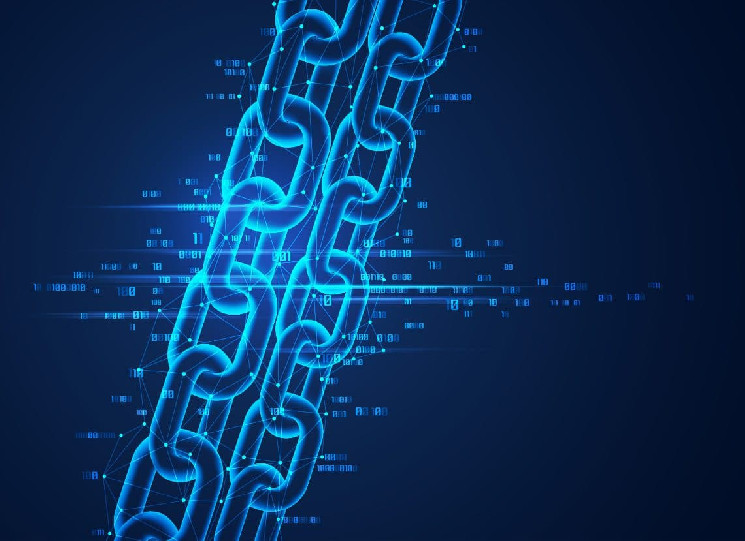IOTA has completed the final phase of the European Pre-Commercial Procurement project, laying the foundations for a scalable, secure, and sustainable blockchain that can support the digital infrastructures of the European Union (EU).
Let’s see all the details below.
Summary
Completed the pre-commercial procurement: IOTA’s blockchain ready to support the EU digital infrastructure
As anticipated, the IOTA Foundation has recently announced the completion of the final phase of the European Pre-Commercial Procurement (PCP), marking an important step forward in the development of the European Union’s blockchain infrastructure.
This initiative, launched in 2020, is an integral part of the European strategy to enhance the European Blockchain Services Infrastructure (EBSI).
That is, a network designed to support cross-border digital services in a secure, scalable and energy-efficient manner.
The PCP project, which involved IOTA and seven other developers, required the creation of innovative prototypes based on distributed ledger technology (DLT) solutions.
These prototypes have focused on crucial aspects such as the management of intellectual property rights (IPR) and the introduction of digital product passports (DPP).
Fundamental elements to ensure transparency and security in digital processes within the EU.
The completion of this third and final phase positions IOTA as a key player for the next evolution of European digital infrastructures, particularly through the future European Digital Infrastructure Consortium for Blockchain (EUROPEUM-EDIC).
This collaboration aims to integrate advanced technologies such as decentralized identities (DID), smart contracts, and innovative data sharding techniques.
In particular with the objective of creating a highly efficient and scalable blockchain environment throughout the European Union.
Collaborations and some statements
During this phase, IOTA has worked in close collaboration with local partners such as Software AG and the Universidad Politécnica de Catalunya.
These collaborations have made it possible to develop advanced solutions aimed at improving the management and security of digital identities, as well as optimizing the energy efficiency of blockchain applications.
These developments represent a milestone in the EU’s ability to adopt emerging technologies, while ensuring adequate data protection and sustainable management of digital resources.
Dominik Schiener, president of the IOTA Foundation, stated the following:
“The EBSI is a crucial element for building an integrated digital future for Europe, providing the essential framework for innovation and cooperation in a wide range of sectors. We are excited to contribute to this journey, bringing our cutting-edge solutions into the context of the EU’s digital infrastructure.”
The success of the PCP project and the transition to EUROPEUM-EDIC pave the way for new market opportunities for IOTA.
The foundation has already announced its intention to consolidate its partnerships with commercial companies and government entities in the region, in order to bring the solutions developed during the PCP to the market.
The potential applications of these technologies are manifold and range from the secure management of intellectual property rights to the monitoring of batteries for electric vehicles, thus contributing to the sustainability and efficiency of industrial processes.
Digital development, AI and criticism
This development fits into a broader context of technological innovation by the EU, which has recently confirmed its collaboration with ChromaWay to develop blockchain-based sustainability solutions.
These initiatives demonstrate Europe’s commitment to maintaining a leading position in emerging technologies, while simultaneously promoting balanced and proactive regulation.
However, criticisms are not lacking. Some observers fear that Europe’s progress in the emerging technologies sector could be slowed down by excessive bureaucracy.
Although the EU has adopted a progressive approach in collaborating with developers and in creating laws to regulate cryptocurrencies and artificial intelligence (AI), there is a risk that these measures could hinder innovation if not managed with the necessary flexibility.
To address these concerns, the EU is organizing a series of workshops and meetings, the next of which will be held in Brussels in September, to outline the next steps and ensure that European policies can quickly adapt to the evolution of the sector.
In particular, the fourth quarter of 2024 and 2025 will be crucial periods to define how blockchain solutions can be implemented effectively and sustainably throughout the Union.
In conclusion, the completion of the final phase of the PCP represents a significant milestone for IOTA and an important opportunity for the EU to consolidate its leadership in the field of emerging digital technologies.
With the implementation of the developed solutions, Europe will be able to continue progressing towards an integrated, secure, and sustainable digital future.
 en.cryptonomist.ch
en.cryptonomist.ch
